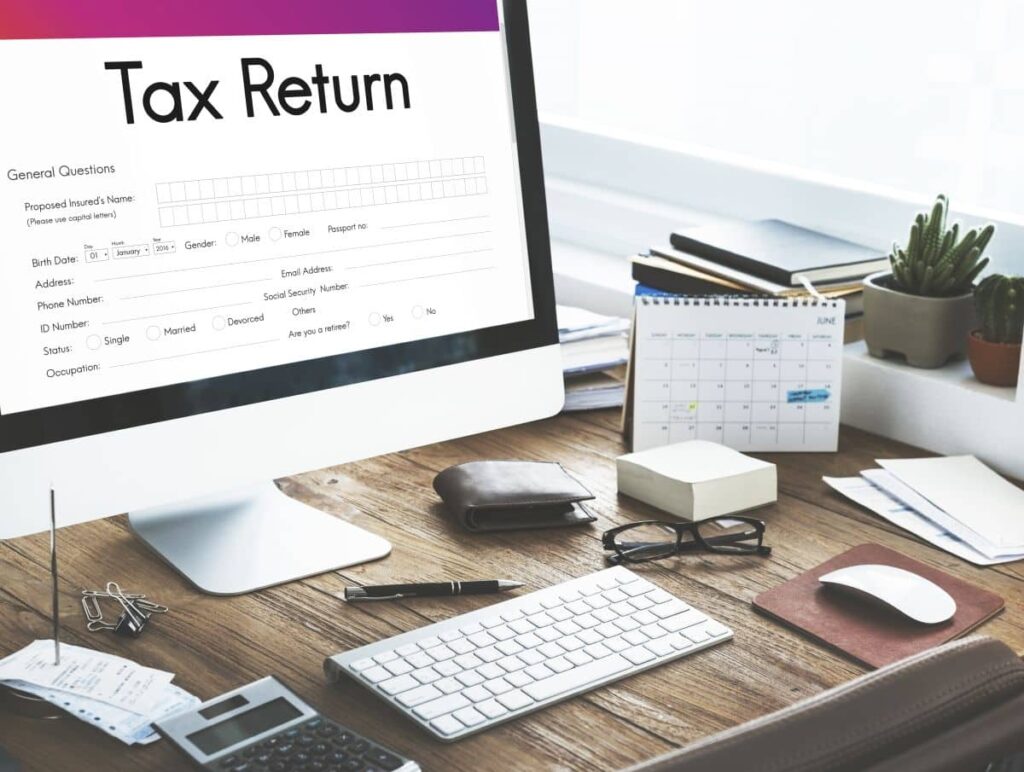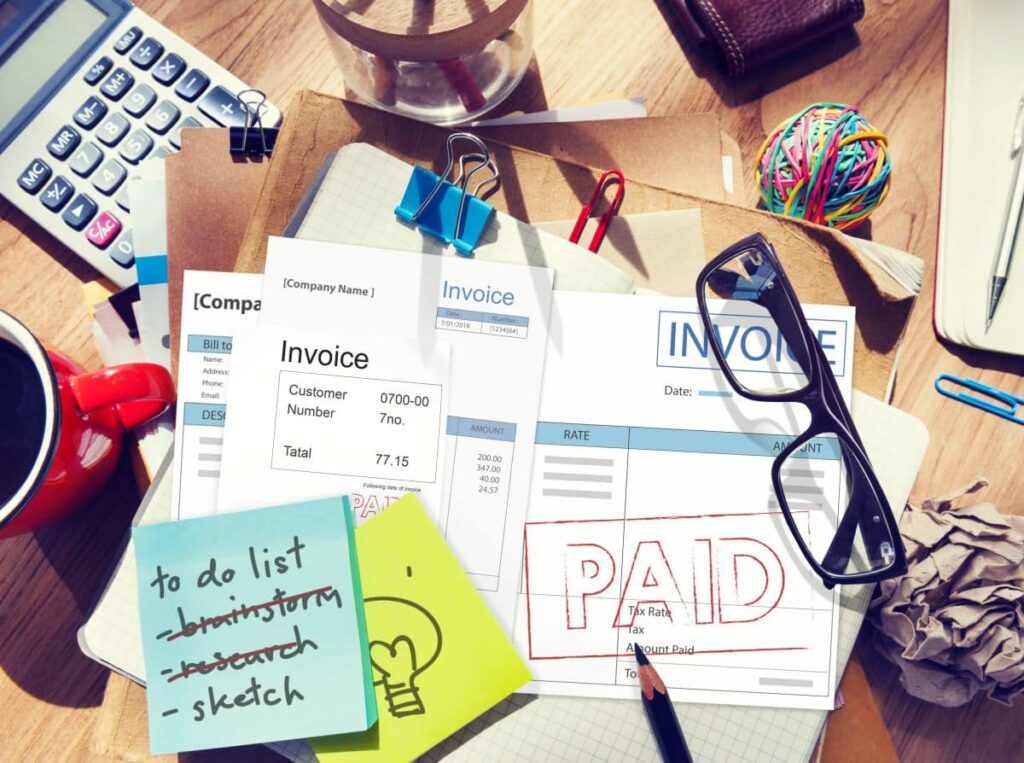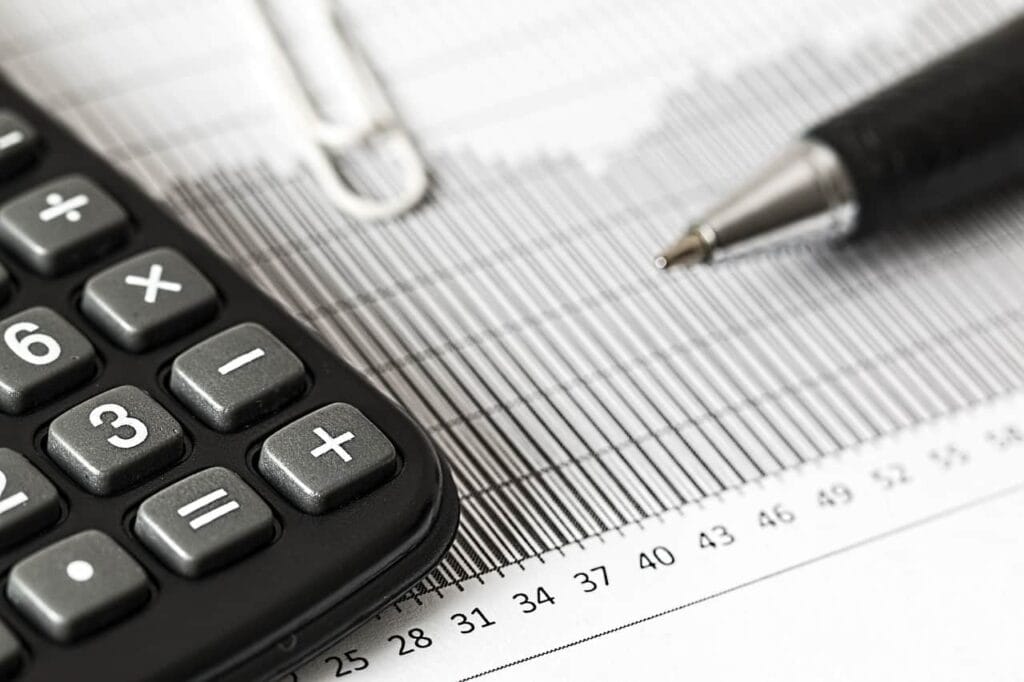Tax time can be stressful for everyone. Between getting your forms and documents in order, navigating the complexities of filing taxes, and striving to get the largest refund possible, it’s understandable if you feel a little overwhelmed. Unfortunately, tax season also has its fair share of scams that could leave you in hot water with the ATO—and out some cold hard cash.
But knowing what warning signs to look out for and how to spot red flags is an important part of staying safe when filing taxes this year. In this blog post, we'll explain some common tax time scams and provide key tips on avoiding them so you can focus on reaping all the rewards of filing your return promptly and accurately—without any hidden costs or worries!
Let's get started!
Avoid Tax Scams
- Always exercise caution when someone asks for your private details.
- Be careful not to post too much information on social media.
- Maintain regular backups of the anti-virus software on your computer.
- Be certain that your computer's connection to the internet is protected and that all printed papers are kept in a safe place.
- In the event that you are concerned, you can call the ATO scam hotline at 1800 008 540.
How to Protect Yourself Against Fraud During Tax Season
Scammers taking advantage of people's anxiety about becoming involved with the Australian Taxation Office are ramping up their activities and raising the total amount of times they contact victims via phone, text message, and email.
The "hunting season" for tax scams has begun, and cybersecurity experts are warning individuals to be cautious of the increasing use of bullying tactics in an effort to scare Australians into having to hand over their Tax File Numbers, banking information, and other private details to fraudsters. The scammers' goal is to steal this information so they can commit identity theft.
The Australian Taxation Office (ATO), which received over 81,000 allegations of scams in the previous year, has stated that it will never act insultingly or threaten instant arrest and will never ask for private details by email, text messages, or social media.
Individuals who receive emails purporting to originate from the ATO or other government agencies must never open up any links or attachments contained in those communications. Instead, they should call the organisation directly or visit their official website independently.
Scammers had a very successful business strategy in which they targeted victims during tax season when those victims were most likely to be thinking about the ATO.
Every single person is responsible for paying taxes, yet we need a clear idea of the manner in which the ATO could go after us. We don't try to resist it; rather, we just accept it and move on.
They are not simply contacting people via email; they are also doing it via the phone, and the message that they deliver is more forthright and frequently intimidating. He stated that con artists frequently claimed their victims of having years' worth of unpaid taxes and were skilled at referencing legislation that sounded official.
Emails and websites are utilising sophisticated methods of social engineering to target people in Australia. These strategies generate an erroneous feeling of urgency by saying that payment deadlines have been missed and sending emails with fake attachments.
The time of year devoted to filing taxes presents a wealth of opportunity.
Phishing scams, which are conducted with the intention of stealing individuals' personal information, make use of ATO logos and another branding on their false pages.
The ATO will never request your Tax File Number and your bank data over email or text message.
If you get a call from someone who says they are calling from the ATO, write down their details and then call the ATO office to verify that they are who they say they are and that their request is legitimate.
Be aware of the current state of your financial and tax situations. If you are certain that you do not owe money to the Australian Taxation Office (ATO), then an email or phone call that claims otherwise cannot be genuine.
Fake TFN And ABN Scams
During the month of April 2022, the Australian Tax Office (ATO) became aware of a new fraud that goes by the name of the false TFN and ABN scam.
The con artist will pose as a person who can assist you in establishing a tax file number (also known as an ABN or TFN) or an Australian Business Number (also known as an ABN). Rather, they will collect your cash and data about yourself, yet they won't provide the service that was promised.
What does it look like? Typically, the con artist would post an advertisement on social media websites such as Facebook, Twitter, or Instagram that has a link to a website that appears to be authentic. Those who click on this advertisement will be requested to provide their private details and pay for the service, although this will not actually take place.
How to protect yourself from falling victim to this con: Creating a TFN and an ABN is completely free. In the event that you want assistance in establishing one, you may do so by working with a tax agent who is registered with the Tax Practitioners Board.
Be very wary if you come across an advertisement for someone offering their assistance in establishing a TFN or ABN on social media or if you get an unwanted text message or email from someone who claims they can assist you in doing so. Never reveal any of your private information to anyone unless you are absolutely convinced that you can trust them.
Cryptocurrency Tax Scam

Another type of con that has emerged recently and is becoming more prevalent this year is one in which the con artist poses as an employee of the ATO and tells the victim that they are under investigation for tax evasion related to bitcoin.
What does it look like? Several people have mentioned that they were approached by somebody claiming to be from the ATO either by text message or email. Users will then be prompted to "connect their wallet" and supply information by way of a link after being told to do so. Then, the victim will be redirected to a bogus version of myGov, which is meant to steal their personal details.
To avoid falling victim to this scam, make sure that you do not click on any links that come through text messages or emails of this nature. The legitimate Australian Taxation Office (ATO) will never send a text message or email including a link to check in to their online services.
The actual ATO might contact you via email or text message and ask you to get in touch with them, but they will never ask for your private details. If you are unsure about something, you can call the ATO's office phone number, 1800 008 540.
Fake Tax Debt
The phoney tax debt scam is one of the most prevalent types of cons that con artists employ to trick their victims into handing over their personal information and cash. Other cons also use scare tactics.
Fraudsters will pose as employees of the ATO and convince their victims that they have an outstanding tax bill that needs to be paid right away.
Fraudsters might approach victims by email, text message, or phone call, pretending to be affiliated with the Australian Taxation Office (ATO). If you do not pay right away, they will frequently threaten to have you arrested, and they will typically require that payment be made in the form of a gift card or to a personal account.
How to prevent falling victim to this scam: The legitimate ATO will never threaten you with instant incarceration, send a pre-recorded message to your phone, collect money using a gift card or bank transfer, or insist that you stay on the line until the payment is submitted. Furthermore, if the ATO does call you, the call will always come from a number that is listed as having "No Caller ID" rather than a specific phone number.
When in doubt, hang up and phone the ATO at this number: 1800 008 540 to find out if what you're hearing is true.
Tax Refund Scam
On the other hand, con artists may use the promise of financial gain to persuade their victims to give away their cash. The fraudulent tax refund scheme is a typical example of this type of con.
Fraudsters will send an email to the target, pretending to be from the ATO and guaranteeing a tax refund in exchange for their personal information. After that, they would ask the victim to confirm their banking details on a form that is included so that they can complete the reimbursement. After that, they will steal money using the account information that was provided.
How to prevent falling victim to this con: If you get an email that seems fishy, do not view any attachments or click on any links in the email. You can verify its authenticity by contacting the ATO at the toll-free number 1800 008 540.
Advice to Help You Prevent Fraud During Tax Season
Here are some safety precautions that you, your family, and your friends should take during tax season.
1. Warnings against fraudulent emails and texts
Don't really respond if you are contacted through email or text message by someone posing as the Australian Taxation Office (ATO) and requesting for financial or personal data.
Take a moment to gather your thoughts before you click anything or provide any information. Stay away from unwanted emails or questionable text messages, and prevent downloading attachments or clicking on links in those messages.
2. Advice on avoiding fraudulent phone calls
Hang up the phone if you get an unexpected call from someone claiming to be from the ATO and telling you that you are eligible for a refund, threatening you with instant incarceration, or telling you that you need to pay money to receive a tax refund.
If you receive a call from someone asking for personal or banking information, you should immediately hang up the phone and call the organisation again using a number that has been made publicly available.
3. Warnings about scams involving the Australian Business Number (ABN) and the Tax File Number (TFN).
Using government services to register for a Tax File Number (TFN) through the Australian Taxation Office (ATO) or an Australian Business Number (ABN) through the Australian Business Registry is simple, fast, and does not cost anything (ABR). In this transaction, there is no requirement to involve any other third parties besides your accountant or tax agent.
4. Try to find a second opinion
It is essential to discuss these cons with your immediate and extended family. In the event that they get an unexpected request for data from a third party, you should advise them to "ask out loud" for a second opinion from a friend or member of their family.
What To Do In The Event That You Have Been Scammed
If you have provided a con artist with personal information or money, there is a possibility that you will never see that money again. You are, however, able to mitigate any further damage or loss. If something like this has occurred to you, the website Scamwatch provided by the federal government suggests the following actions:
- Make connections with individuals you already know: Inform your loved ones, including your friends and family, of what has transpired.
- Call your financial institution If you have already supplied the scam artist with information about your bank account or credit card, you should directly notify your financial institution. They might be capable of cancelling the transaction, refunding the payment on your credit card by performing a "chargeback," or even closing your bank account if the situation warrants it.
- IDCARE is a government website that will collaborate with you to organise a reaction and assist with recovering your identity if it has been stolen. If your identity has been stolen, contact IDCARE as soon as possible. You can contact IDCARE at 1800 595 160 or visit their website. You can also submit an application for a Commonwealth Victims' Certificate to provide evidence for your claim that you have been a victim of identity theft and to assist you in re-establishing your credentials.
- Scams can be reported to the Australian Competition and Consumer Commission (ACCC) via the webpage titled "Report a Fraud." Depending on the specific con that was perpetrated on you, you might also be required to file a complaint with the Australian Taxation Office, Centrelink, Medicare, the Australian Competition and Consumer Commission, the police, and the Australian Securities and Investments Commission. Therefore, in addition to reporting the fraud to your telecommunication company, email service, and/or a social media site, you should take some precautions.
- Modify the passwords to all of your online accounts: If you discover that any of your online accounts have been hacked, you should instantly change the password for that account. If you can't access your hacked account, the majority of websites will provide you with step-by-step directions on how to restore it.
- Configure your online accounts using a two-factor authentication system: Authentication based on two (or even three) factors provides an additional layer of security. The vast majority of systems that employ two-factor authentication will need you to input a code that was either emailed to you or texted to your phone in addition to your login and password. Because of this, it will be much more difficult for hackers to access your account if they do not already have access to your phone or email. Again, most websites will provide you with step-by-step directions on configuring this aspect of your online account.
Stroll, Don't Run And Utilise Reliable Lodgement Channels

On July 7, 2023, the ATO will begin full processing of tax returns for the year 2023, and they anticipate that they will begin paying refunds on July 16, 2023. It is stated that the vast majority of tax returns that are filed digitally will be completed within 12 working days after their arrival.
Often, the 'pre-fill' data from employers, banks, government agencies, health funds, and other third parties does not exist on ATO systems until late July. This can cause delays in filing returns.
Make an effort to avoid rushing things. Many people file their taxes before they have all of the data about their income and deductions, so before you file, double-verify that you have all of the necessary papers. Then, if a con artist later contacts you and claims that your tax return was missing information, you will be able to spot the rat this way.
Use myTax, which is connected to your myGov credentials, if you are lodging your return. Each year, we hear about websites that purport to allow taxpayers to electronically file their tax returns and emails that appear to have originated from the Australian Taxation Office (ATO).
Never pass over your tax information to a "friend" who offers to handle your tax return for you; doing so is equivalent to giving someone your wallet.
If you want to work with a tax agent, check to see that they are registered with the Tax Practitioners Board. Also, be wary of any tax agent who guarantees a larger tax refund but encourages you to make false claims in order to get it.
You can get your taxes in order with the assistance of a good tax agent. They compute the amount you are entitled to, and neither more nor less.
Ensure the Safety of Your Private Information Online
Use difficult passwords and, if at all feasible, two-factor authentication to keep your personal and financial information safe when it's stored online. This may sound obvious, but it's important to keep in mind.
Keep as much of your financial life as possible out of the public eye by limiting the amount of personally identifying information you disclose online through social networking sites.
Fraudsters simply need a few details in order to impersonate you or break into your accounts. All they need is a username and password.
Please Report Anything That Seems Odd
Only respond to an ATO engagement if you have the slightest doubt about whether or not it is genuine. Rather, you should get in touch with the ATO to confirm the conversation before you move forwards.
The Scamwatch website (scamwatch.gov.au) is a helpful up-to-date reference to recent scams. In addition, the ATO hotline number, 1800 008 540, can be used to verify the authenticity of a contact.
Talk To An Accredited Public Accountant In Your Area
Go to the Chartered Accountant in your area if you're experiencing any worries or questions about filing your tax return.
Keep in mind that your neighbourhood CA can file your tax return for you utilising secure internet lodgement links that go straight into the ATO's computers. Also, as your tax consultant, they will handle any follow-up communication with the ATO.
Know The ATO
Keep in mind that the ATO will never do the following:
- Request that your tax debt is paid using a bank account that is not associated with the ATO, using pre-paid cards, or with cryptocurrencies such as Bitcoin.
- You will be arrested right away if you don't comply.
- You will be required to pay a fee in order to get your money back.
- Send you an email or a text message and then ask for private details like your Tax File Number (TFN) or credit card number.
- You will receive an unsolicited email that contains attachments or requests that you download files from the internet.
Put the phone down and dial the ATO's contact number, 1800 008 540, if you have any concerns or doubts about the legitimacy of a call or message that purports to have originated from the ATO.
Frequently Asked Questions
- The money must have been spent by you and not have been reimbursed by your employer;
- The expense must directly relate to earning of income; and.
- You must be able to prove the expense by having a record such as a receipt.
Records are written evidence of your income or expenses, these can be either paper or electronic. You need to keep records that support the claims you make in your tax return. For most expenses you need a receipt or similar document from the supplier.














